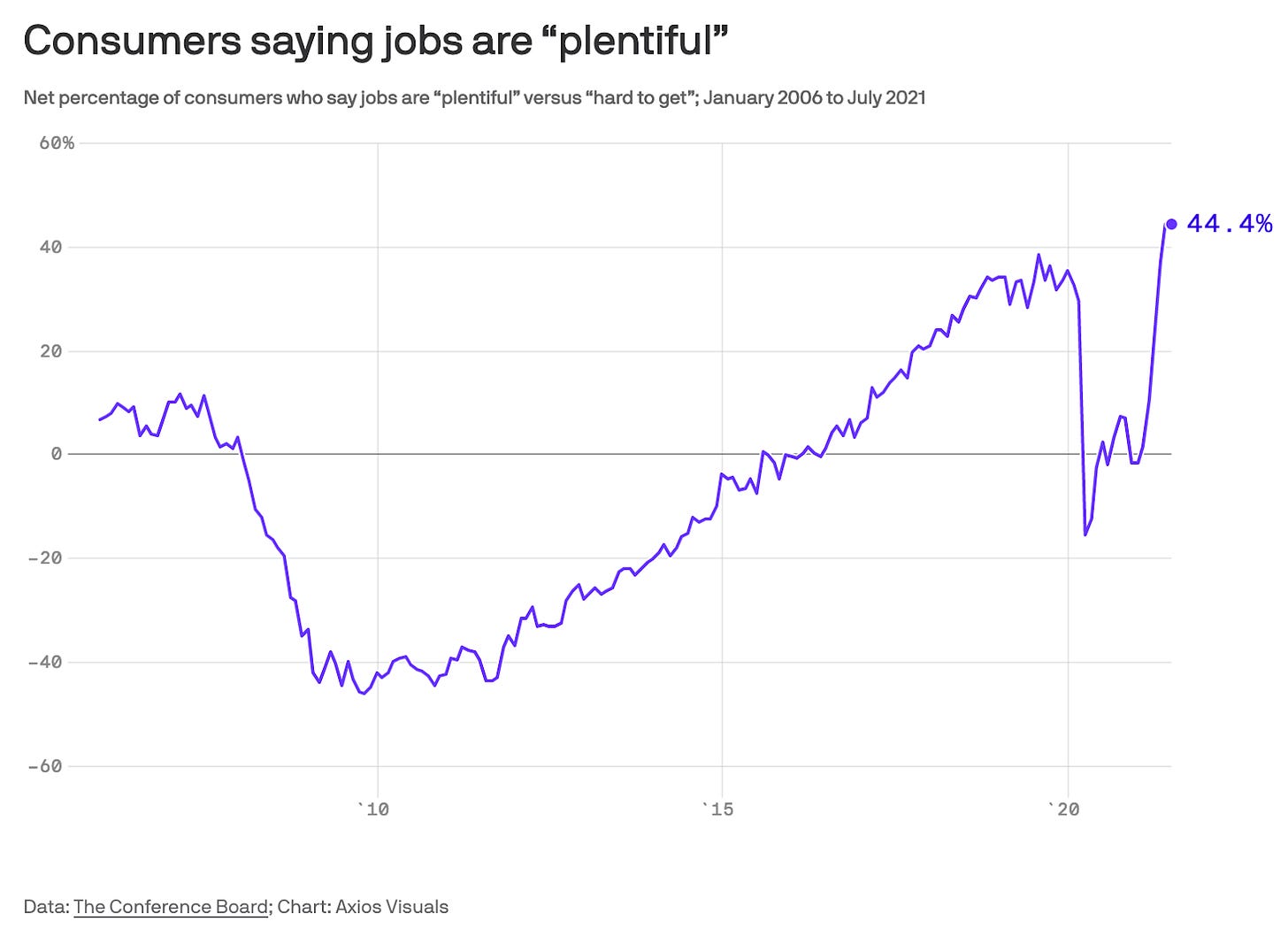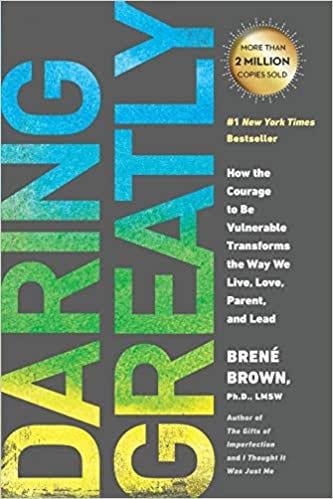Episode 13 — July 29th, 2021 — Available at read.fluxcollective.org/p/13
We’re a ragtag band of systems thinkers who have been dedicating our early mornings to finding new lenses to help you make sense of the complex world we live in. This newsletter is a collection of patterns we’ve noticed in recent weeks.
“In life, the challenge is not so much to figure out how best to play the game; the challenge is to figure out what game you're playing.”
— Kwame Anthony Appiah
🍔🥗 Improve your information diet with this one simple trick
While society has well-established rules and regulations around the quality of food and its consumption, rules around information consumption are still emerging. A framing that we’ve found helpful here is memetic hosting. It suggests that some information exists primarily to spread like a virus, with us as its hosts.
This sort of information is unlikely to have high nutritional value: its purpose is not to expand our understanding of the world, but rather to optimize for virality. If we are to watch our information diet, we need to learn how to spot such information and choose something a bit more healthy.
One way to gauge this is by listening for our emotional response to the information. Do we feel outraged? Offended? Upset? Gratified? Vindicated? Scared? Chances are the writer is trying to reach our limbic system and enlist us as a memetic host. We might be consuming something that had selection pressure, either intentionally or unintentionally, to spread via emotional contagion.
If we’re feeling curious, intrigued, or fascinated, the information might instead be engaging our frontal cortex. This content will generally have higher nutritional value and be something to enrich our understanding, help us see another perspective, or uncover an insight.
Just like how we eventually learn to avoid clickbait content, we can further improve our information hygiene by becoming aware of when we’re being treated as memetic hosts. This requires a bit more conscious effort and practice, intentionally asking ourselves which part of our brain is compelled to share information, and how doing so helps to improve the overall nutritional value for those around us. It might also be helpful to reflect on our past experiences to discern when we’ve acted as memetic hosts, our anxiety or outrage used as mere distribution mechanisms.
🛣️🚩 Signposts
Clues that point to where our changing world might lead us.
🚏🍸 500 SF bars will require a proof of vaccination or negative test to get in
While the San Francisco city government isn’t requiring proof of vaccination to enter venues, a group of 500 bar owners in the city are taking matters into their own hands: customers who want to sit inside will have to show a proof of vaccination or a negative COVID-19 test.
🚏👩✈️ American workers’ confidence in the job market hits a 21-year high
The US still has 6.7 million fewer jobs than it did pre-pandemic, so the job market is looking great for workers: 55% of them are saying that jobs are “plentiful” versus just 10% who say they’re “hard to get,” a dramatic reversal from last year and the largest spread since 2000. Many workers are leveraging this confidence into pay raises or better jobs entirely.
🚏🗓 The COVID-19 recession was two months long, the shortest in history
A new report from the National Bureau of Economic Research says that the coronavirus-driven recession lasted from February 2020 to April 2020. The economic contraction was severe, wiping out a decade of job growth and sinking GDP by over 30% on an annualized basis, but it was the shortest on record: the economy started growing again in May 2020.
🚏🍕 Pizza Hut is launching a “streetwear” collection, including a gold chain
The fast-food pizza company announced it will start selling branded tracksuits, sandals, shirts, cups, and even gold chains. It’s far from the first fast-food firm to sell branded merch: Popeyes, Red Lobster, Outback Steakhouse, and Chipotle launched their own gear earlier this year, which became social media sensations and sold out within minutes.
🚏🏭 Colorado passed an “embodied carbon” bill to reduce buildings’ CO2 emissions
The concept of “embodied carbon” refers to the total carbon dioxide emitted at every stage of a material’s lifespan, from manufacturing to installation to maintenance. A new bill passed in Colorado, one of the first of its kind, attempts to slash the embodied carbon output of public buildings and roads by 50% by 2030 and 90% by 2050, a boon for companies that create low-embodied-carbon building materials like cement.
🚏⛽️ Elon Musk admits that he’s pumping Bitcoin; Bitcoin’s price immediately spikes
The billionaire said outright that he’s going to keep using his fame to inflate the price of Bitcoin, but he promised that he wouldn’t sell his coins once the price rose: “I might pump but I don’t dump.” Since he’s in it for the long haul, Musk argued, he’s incentivized to keep boosting the price.
Sure enough, Bitcoin’s price spiked from $30,000 to $40,000 within just a few days of Musk’s announcement.
🚏🚁 An electric air taxi prototype completed a 150-mile test flight, 3x faster than a car
The startup Joby Aviation is developing an electric, “vertical takeoff and landing” aircraft that it says can be used as a fast, green alternative to cars, able to complete mid-length trips three-plus times faster than road vehicles. Its latest air taxi prototype just completed a 150-mile test flight designed to simulate flying from San Francisco to Lake Tahoe, which are just over 150 miles apart.
📖⏳ Worth your time
Some especially insightful pieces we’ve read, watched, and listened to recently.
The Cooperation Economy (Not Boring) — Packy McCormick describes the new phenomenon of “Liquid Super Teams,” which are fluid, informal, and emergent mini-organizations that are born when individuals (newly empowered to strike it off on their own, away from institutions) temporarily team up.
Fifth-Generation Management (Ribbonfarm) — Venkatesh Rao develops a theory of five “generations” of warfare, shows how business culture tends to lag one generation behind warfare, and uses this model to develop predictions for what the future of tech and business might look like.
Drawing Pictures of Cities (Noahpinion) — Economist Noah Smith illustrates how we can use art to help us imagine brighter futures for our cities, using a popular “solarpunk” illustration as a jumping-off point.
Africa Writes Back (Aeon) — A medievalist describes the long history of intellectuals using circular reasoning (and, sometimes, violence) to claim that indigenous Africans were incapable of literary or cultural feats; he then argues that the very notion of literacy being necessary for cultural modernity traps historians into thinking that all societies need to follow the same, European-style cultural trajectory.
Death and Rebirth in Forests (Nautilus: Poetry in Science) — A poem about life, death, and rebirth in a forest, with the speaker realizing that, even though ecosystems constantly recycle their nutrients and regenerate themselves, you still can’t shake the feeling of loss when something you love dies.
The Human Fear of Total Knowledge (The Atlantic) — A tour of how infinite annals of knowledge have been treated skeptically throughout literary history, and a reflection on what this means for us in the internet era.
🌀🖋 More from FLUXers
Highlighting independent publications from FLUX contributors.
In Aggregators Aren’t Open-Ended, FLUX’s own Gordon Brander writes that the threat of commoditization leads actors in an ecosystem to generate new layers atop existing platforms, and that this layering is how technology evolves. But, he argues, aggregators have found a way to shut down this layering cycle, prolonging their time in power by limiting the expressive power of their products.
📚🌲 Book for your shelf
As you delve deeper into systems thinking, don’t forget that you yourself are a part of it.
This week, we recommend Daring Greatly: How the Courage to Be Vulnerable Transforms the Way We Live, Love, Parent, and Lead by Brené Brown, Ph.D. (2015, 320 pages).
Brown first gained notoriety through a widely-shared TED talk; there’s something about vulnerability that hit the spot back then and has only become more relevant in the last year-plus. While some may hesitate to blow the mainstream dust off of this book, Brown has mainstreamed some rather deep ideas.
Through research and praxis, Brown develops a notion of vulnerability as a tool for facilitating human connection and finding meaning in our lives. She draws an important distinction — and calls out a common misconception — that vulnerability is characterized by “uncertainty, risk, and emotional exposure.” But it’s not about weakness. Rather, it’s a requisite start in stepping out of our comfort zone and achieving something new. By practicing vulnerability, we put ourselves in a position to be daring, to dare greatly. Like her other books, this one is a potent combination of research-backed lessons and techniques delivered in Brown’s typical down-to-earth, relatable manner. There’s a reason her work has become so popular!
🕵️♀️📆 Lens of the week
Introducing new ways to see the world and new tools to add to your mental arsenal.
This week’s lens: Kobayashi Maru.
In the Star Trek universe, there’s a famous training exercise that’s designed to test the character of the Starfleet Academy cadets: a no-win scenario involving the rescue of the civilian vessel Kobayashi Maru. The story goes that Captain Kirk actually won the scenario by reprogramming the training simulator to make the rescue possible. Such a bold move to change the conditions of a test can come in handy outside of Star Trek and can serve as a more general lens.
When we find ourselves in an over-constrained situation, it might be worth recalling the spirit of the Kobayashi Maru: what is it that we’re not seeing? What constraints might we remove if we step out of the simulator — that we ourselves created? Even when everything feels set in stone and impossible to move, let’s give our inner Kirks the space to wonder and reflect. What parts of these circumstances are just stories we tell ourselves, stories we can change? Which aspects of our simulator can we reprogram?
🔮📬 Postcard from the future
A short ‘what if’ piece of speculative fiction about a hypothetical future that could result from the forces changing our world.
// 168 hours: no matter who you are, where you live, or how much money you make, everyone gets 168 hours per week. The pandemic has shaken many people’s relationships to their jobs, committees, and communities. What will come when a non-trivial number of people re-evaluate their relationship with 168?
// A history of the 2020s workers’ revolution
After two years of pandemic, with the initial COVID-19 lockdowns, and then the subsequent Delta and Mu surges, 2023 saw the Western world in a dazed state. Industries reliant on cheap and/or plentiful labor for low-respect jobs had taken serious body blows. Restaurants, agriculture, construction, low-end retail, and education saw drastic reductions in the number of people willing to trade their time for jobs that couldn’t pay for housing. Despite a rebound in the stock market, many of these jobs were permanently dislocated.
Surprisingly, even more-respected industries were caught up in their overuse of cheap labor — especially higher education, which relied heavily on cheap grad student labor and thus saw dramatic drops in applications as the realities of oversaturated job markets finally caught up with the grad student pipeline. And after the near-permanent border closures, students who were compensated mostly in visas and green cards stopped showing up, too.
The resulting carnage across many economic groups saw the mass closure of businesses at levels not seen since the 1930s. Governments and politicians struggled to handle the vast numbers of unemployed. The financiers and opportunists jumped into action, trying to peddle cheap distractions and “fix your life in five easy steps” videos. But their “quick fixes” ran into massive problems as a networked population spending 18 hours a day on Reddit and WhatsApp realized that exposing junk programs was worth more in internet fame than the paltry sums they generated from MLM scams.
In a world where almost everyone has an internet connection and a smartphone, knows how to use Zoom, and is unemployed, what happened? A revolution the Marxists could only have dreamed about. Groups of people collectively decided to “go it together.” Using the financial tools of Web3, along with smart contracts for labor, they organized to pool their interests and talents. Some would watch and teach the kids, while others took charge of gardening and cooking. A handful took “normjobs,” slinging code or doing physical labor to extract fiat currency for the collectives.
While many of these collectives petered out by the early 2030s, a non-trivial number hung on. They adopted an “in the world but not of it” attitude and, through collective voting, created sufficient old-world political power to persist and thrive.







